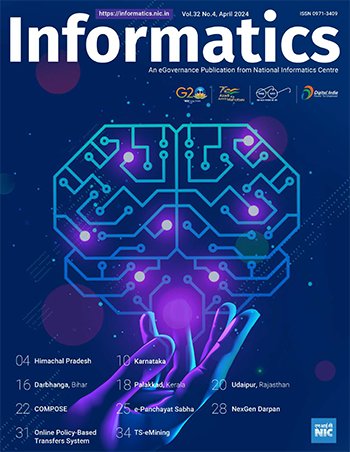Editorial
In an era where technology permeates every facet of our lives, from how we communicate to how we conduct business, its role in shaping democratic values is undeniable. The intersection of technology and democracy presents both opportunities and challenges, but if wielded thoughtfully, it can be a powerful force for progress and inclusivity.
Technology has the potential to enhance democratic principles such as transparency, accountability, and participation. Social media platforms, for instance, serve as conduits for citizen expression, facilitating real-time oversight. The digital age has democratized access to information, enabling citizens to make informed decisions and scrutinize the actions of their representatives like never before.
The advancements in technology have facilitated the creation of innovative tools for civic engagement and governance. From electronic voting systems to e-Governance platforms, digital solutions can streamline administrative processes, reduce corruption, and increase citizen participation in decision-making. These technologies have the potential to make governments more responsive to the needs and preferences of their constituents, ultimately strengthening the democratic process. However, the rapid pace of technological advancement also presents challenges to democratic values. Issues such as online misinformation, data privacy breaches, and digital divides threaten to undermine the integrity of democratic institutions and exacerbate existing inequalities. As technology continues to evolve, it is crucial that policymakers and technologists work together to address these challenges and safeguard democratic principles.
One of the key challenges in harnessing technology for democracy is ensuring that it is accessible and inclusive for all citizens. The digital divide, characterized by disparities in access to technology and internet connectivity, disproportionately exacerbates existing inequalities. Bridging this divide requires concerted efforts to expand access to affordable broadband infrastructure, digital literacy programs, and inclusive technology design.
Additionally, the rise of online misinformation and disinformation poses a significant threat to democratic values, undermining trust and distorting public discourse. Combating misinformation requires a multi-faceted approach including media literacy, fact-checking initiatives, and platform accountability measures. By promoting digital literacy and critical thinking skills, citizens can become more discerning consumers of information and better equipped to navigate the complexities of the digital landscape.
Furthermore, protecting data privacy and ensuring cybersecurity are paramount to upholding democratic values in the digital age. As governments and businesses collect vast amounts of personal data, there is a growing need for robust data protection laws and security measures to safeguard against abuses and breaches of privacy. Citizens must have confidence that their personal information is being handled responsibly and transparently to trust the institutions they interact with.
Despite these challenges, the potential of technology to advance democratic values remains immense. By harnessing the power of technology responsibly and inclusively, we can create more transparent, accountable, and participatory democracy.
Having said that there can be no democracy without the active involvement. Let’s acknowledge the power of our vote. Let’s embrace our role and caste our ballots. Let’s make our mark and be the change we wish to see!
Editor-In-Chief

